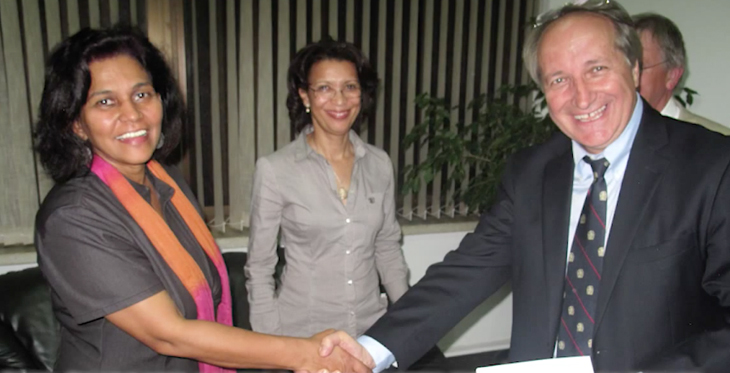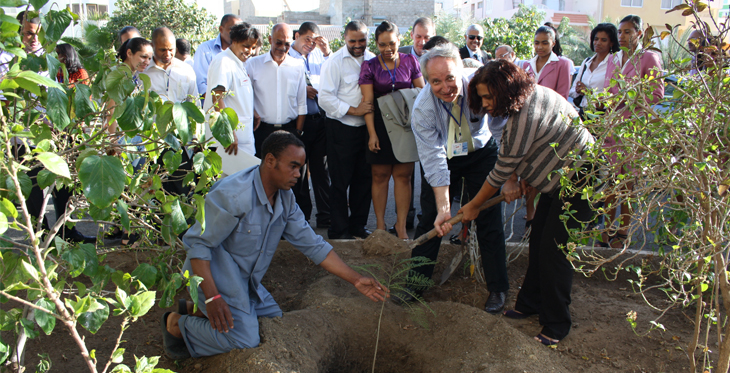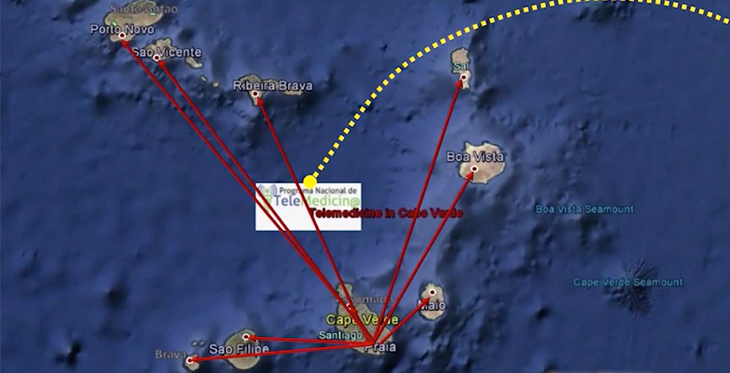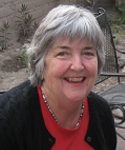Rifat Latifi, MD, general and trauma surgeon, professor of surgery at the UA and associate director of the Arizona Telemedicine Program, put all that on hold four years ago to direct the only Level One trauma program in Qatar – and to develop new health-care systems in the war-torn part of the world where he was born and grew up.
He returned to the UA in January, having fully accomplished his mission of establishing national telemedicine programs in Albania, based on the model developed previously in his native Kosovo, and in Cabo Verde, Africa. Other telemedicine programs are being explored in a number of countries in Africa and Southeast Asia.
Asked why he made such a dramatic career turn, Dr. Latifi has an immediate answer.
“I am one of the lucky ones,” he declares with his signature smile. “You will never find a luckier man than me. Leading the trauma center in Qatar was like being a doctor at the United Nations.
“I have trained in the best institutions of this country, and had some of the best surgery teachers. I get to do some spectacular things around the world. I get to care for the sickest patients, the most seriously injured ones, change their lives and cheat death. This is the best possible privilege that one can have.
“But I have never forgotten that I come from a country that needs so much help, and I thought I should do something about it, something that could also be used in other countries around the world.”
And so he did. In 2000, at the Berlin meeting of the G8 – the council of world leaders – he presented his idea to develop an International Virtual e-Hospital. The idea was accepted, the non-profit IVEH was founded and Dr. Latifi continues as its CEO.

“The goal is to help countries help their own people,” Dr. Latifi explains. “I don’t subscribe to the notion that we build something in a country and the people there are dependent on our expertise forever. If you build something for my country, I should be able to advance it, maintain it, and look after my own people -- not you.”
He readily admits his idea “took some convincing. Health-care technology was not on their radar. To them, it sounds like something deluxe, something spectacular. The question on their radar is how to keep the country going. But later they understand that this is a basic need.”
Dr. Latifi sought and obtained funding from various sources, including the European Union, the U.S. State Department and the U.S. Agency for International Development.
“This morning I was in Albania,” he said during an interview two weeks ago. “I was tele-present in Albania. We have added two more sites there with tele-toxicology and tele-ICU. The entire country of Albania is covered with telemedicine program. Yesterday I was in all nine islands of the Republic of Cabo Verde.”

This multi-national transformation of health care in developing countries sounds almost simple. “We find a donor, we build it, and we give it to the country,” he says. And the centers are all built on the same design.
As each center is completed, a tree-planting day is held. “We see telemedicine as eco-friendly,” Dr. Latifi explains. “There is less travel between patient and doctor. The trees are a symbol of making the world a healthier place.”
Dr. Latifi was born and grew up in Prishtina, Kosovo, and obtained his medical degree from the University of Prishtina. He completed internships there and at the Cleveland Clinic Foundation in Ohio, then did his residency at Yale University, followed by a surgical critical care fellowship at New York Medical College.
Now back at the UA as professor of surgery and the department’s vice chair for international affairs, Dr. Latifi wants to see further expansion of telemedicine around the world.
“I am hoping that we as a university, with our outstanding Arizona Telemedicine Program, can concentrate more on global health care and how it can be delivered through telemedicine.
“We have some great things we can show to the world.”

